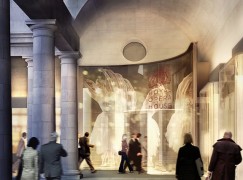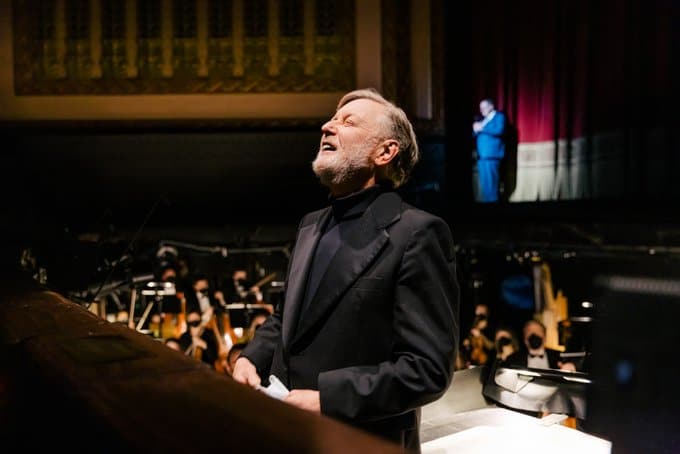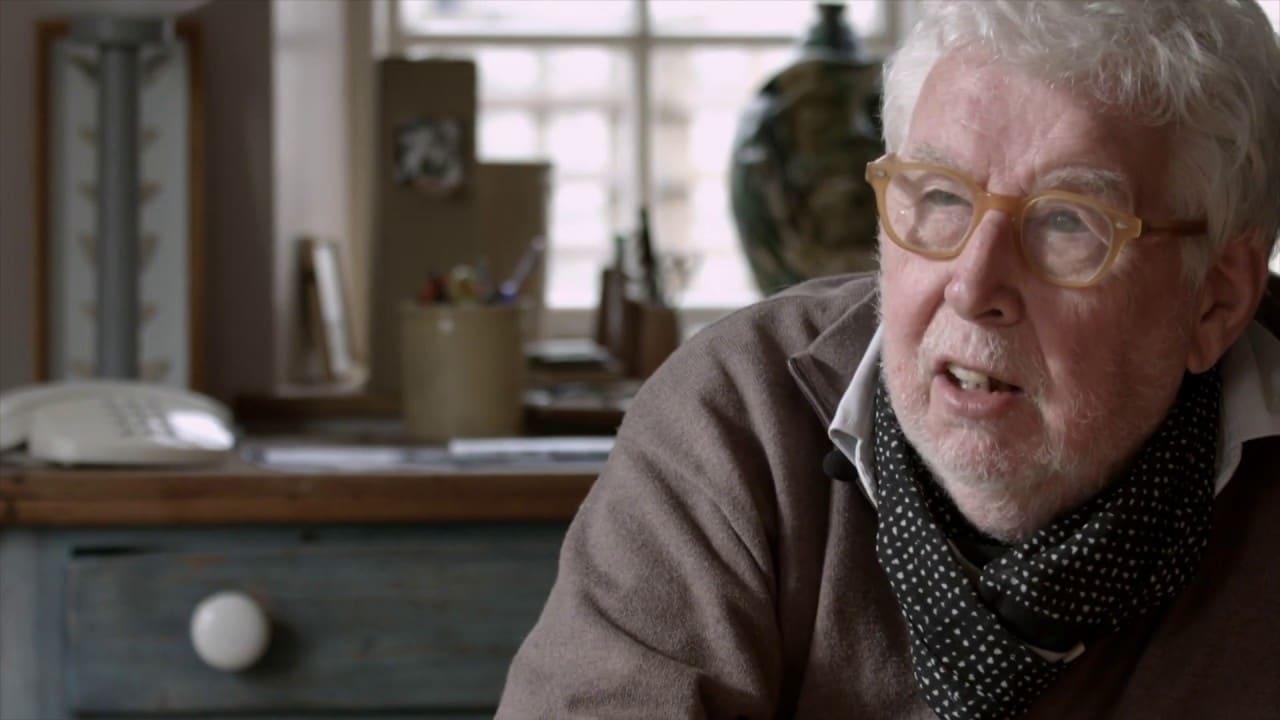The tougher side of Covent Garden’s chairman
main‘Lunch with the FT’ is a soft feature in which the Financial Times gently grills a public persona, often served up by the PR machine, on their sweeter human side.
Not this week.
In a no-holds-barred conversation, the FT editor Lionel Barber subjects Ian Taylor, chairman of the Royal Opera House, to a forensic interrogation of his business activities in the oil industry and elsewhere. It’s a brilliant, knowing, revealing piece of journalism, a model of its kind.
Ian Taylor is one of Britain’s wealthiest businessmen, chairman of the Royal Opera House, and a generous donor to the arts and the governing Conservative party. He rubs shoulders with cabinet ministers, boasts a fabulous private art collection, and spent hundreds of thousands of pounds trying to stop Brexit and Scottish independence. His choice for lunch is a quintessentially English establishment: the five-star Goring Hotel, close to Buckingham Palace.
Yet Taylor is not exactly Mr Conventional. He runs a company you’ve probably never heard of: Vitol, the world’s largest independent oil trader. He has done business with some of the least savoury regimes in the world, from Castro’s Cuba to Saddam’s Iraq, via Africa, the Balkans and Central Asia. If he is indeed an English gentleman, he fits the tradition of the Elizabethan buccaneer, albeit without the knighthoods bestowed on Drake, Grenville and Raleigh — a sore point, of which more later….
Read on here.
And don’t miss this correction.

If only the FT would apply the same rigour to its limp arts interviews.





Paywalled – summarize?
Or cut and paste.
Vitol’s Ian Taylor on oil deals with dictators and drinks with Fidel
Chairman of the biggest independent oil trader talks about the art of living dangerously
Lionel Barber, August 3, 2018
Ian Taylor is one of Britain’s wealthiest businessmen, chairman of the Royal Opera House, and a generous donor to the arts and the governing Conservative party. He rubs shoulders with cabinet ministers, boasts a fabulous private art collection, and spent hundreds of thousands of pounds trying to stop Brexit and Scottish independence. His choice for lunch is a quintessentially English establishment: the five-star Goring Hotel, close to Buckingham Palace.
Yet Taylor is not exactly Mr Conventional. He runs a company you’ve probably never heard of: Vitol, the world’s largest independent oil trader. He has done business with some of the least savoury regimes in the world, from Castro’s Cuba to Saddam’s Iraq, via Africa, the Balkans and Central Asia. If he is indeed an English gentleman, he fits the tradition of the Elizabethan buccaneer, albeit without the knighthoods bestowed on Drake, Grenville and Raleigh — a sore point, of which more later.
Taylor is seated at his usual far corner table, a gaunt figure in dark suit, white shirt and navy blue tie. He is still recovering from radiotherapy to treat throat cancer, having already had two bouts of “massive” surgery. When I joke about the great, the good and the Goring, he bursts into a fit of coughing-cum-laughter. “It’s a bit of a cheat,” he confesses, “my office is around the corner.”
Vitol is at heart a merchant, moving oil around the globe and trying to make a buck in between. It’s a high-volume, low-margin business, where personal relationships matter. With turnover of more than $180bn last year, Vitol competes with the trading arms of the oil majors, Royal Dutch Shell and BP, as well as mighty rivals such as Glencore and Trafigura. Every day it trades more than 7m barrels of crude and oil products — enough to supply the fuel needs of the UK, Germany, Spain and France combined. For the bosses there are handsome rewards. Last year alone, the privately owned company paid out $1.6bn through share buybacks.
But there is a shadowy side to this world. While the oil industry talks a lot about transparency, dirty habits die hard. In a world of cash-strapped oil producers, in-country agents and fixers are never far away, raising the risk of bribery and corruption. Half-joking, I ask Taylor how he feels about a career operating on the dark side.
“Every country has to buy and sell oil,” says Taylor, cagily, resorting to the Panglossian argument of the commodities brigade that oil leads to electricity and so upliftment. “You know the numbers: a billion people are still not on electricity around the world; three billion who still cook on stoves and dung, wood and charcoal. There’s a tremendous amount bluntly yet to be done.”
A crisply attired waiter arrives bearing bottled water and menus. I opt for the summer salad and Cornish cod, while Taylor chooses Orkney scallops and Loch Duart salmon. We each agree to drink one glass only of Austrian white wine, the driest available.
Walking on the wild side has come naturally to Taylor. As a teenager, he spent time in Tehran, where his father was posted for ICI, just before the fall of the Shah. Taylor later hitchhiked from Iran to Afghanistan, before the 1979 Soviet invasion. He met his future wife, Tina, in Caracas, when he was working for Royal Dutch Shell. The capital was “buzzy,” if a little dangerous. (“In those days it had the highest consumption of whisky in the world.”) When Shell informed Taylor his next post would be Singapore, he had a choice to make. Lee Kuan Yew’s government did not tolerate live-in girlfriends and Tina was getting restless. One night, Taylor and his wife-to-be went out drinking with their friends. “When I got back I proposed. It was about 7am.”
Taylor, however, has little of the bravado of Ivan Glasenberg, the South African tycoon who runs Glencore, Vitol’s great trading rival, who has just been subpoenaed by the US Justice Department over dealings in the Democratic Republic of Congo, Nigeria and Venezuela. He rarely uses expletives and wears a semi-permanent smile. In a business where contacts matter, his network is second to none.
By 1985, Taylor had had enough of Shell’s bureaucracy. Back in Thatcher’s Britain, he contacted oil traders he had known from Singapore and went for (another) drink. Lunch followed with two top Vitol executives, one of whom was Bob Finch, a former petrol pump attendant from New Malden, south-west London.
In those days, Vitol, founded in 1966, was a small Dutch-based oil trader in the second division. Finch was “very hungry,” “very driven” and “full of ideas.” Did Taylor ever imagine that their partnership would create a mega commodity trading house shipping crude oil, diesel, gasoline, liquefied natural gas and coal around the world? Or that he would become super-rich? (He won’t confirm or deny he is worth three or four times The Sunday Times’ rich list estimate of £185m.)
“It was a very slow realisation,” says Taylor, “that to be successful you had to have a genuine global operation.”
Taylor talked a big game and his reward was to go back to Singapore to set up Vitol’s crude oil trading operation. Again, his timing was impeccable. The break-up of the Soviet Union created new national oil and gas suppliers such as Kazakhstan, now a long-time client. Deng Xiaoping’s China was liberalising, the first step to entering the world economy. The so-called commodities supercycle coincided with the rise of China, India and Brazil as economic powerhouses.
Along with a handful of fleet-footed rivals such as Glencore, Gunvor, Mercuria and Trafigura, Vitol emerged as one of the players in the industry. It drew on the template established by Marc Rich, the notorious American commodities trader and Glencore founder.
Rich’s central insight was that trading in raw materials, if backed by bank finance, required less capital and fewer assets than the big producers thought. But in 1983, Rich was charged in the US with tax evasion and racketeering and he fled to Switzerland, only to be pardoned by US President Bill Clinton, hours before leaving office 17 years later.
Taylor, who knew Rich, describes him as “very charming, very elegant, and very proper.” Hold on, I say, he was also a crook. “Well, he took things too far,” says Taylor, hoarsely. “And he paid a heavy price.”
Another coughing fit, followed by an awkward silence. Taylor has barely touched his scallops or his wine. Feeling a pang of guilt, I switch subjects. These Goring portions are a little on the light side, I say, although the summer salad is crisp and fresh.
How did Vitol make so much money? Well, the company has remained private and it has very little debt. All the profits — billions over the years — flow back to the partners, now numbering about 350. Then there is the knack of market timing, knowing when to buy, how best to transport, and when to sell.
At the turn of the century, when oil prices were beginning their long ascent, Vitol bought cheap from the national oil companies, held the stock, and sold it at a later date to the US, where prices were higher. This proved highly lucrative, especially when the market was distorted by oil embargoes imposed on the likes of Iran and Iraq.
“You must have made out like bandits,” I remark.
“No, not bandits,” says Taylor, jabbing my left arm not so playfully, “but we did do well.”
Vitol attracted interest from Enron, the rogue commodities trader that toppled into bankruptcy in 2001. “They offered a crazy amount of money. There was one meeting but the culture clash was obvious.”
Enron offers a segue into Vitol’s overseas escapades. I broach one of the more notorious examples, the company’s dealings with Arkan, the Serbian warlord whose paramilitaries were responsible for some of the worst ethnic cleansing in the Bosnian war in the early 1990s, and who later died in a hail of bullets in Belgrade in 2000. The meeting was in 1995, when UN sanctions were in place, making it illegal to supply oil to Serbia. Vitol insists the oil was delivered only after the sanctions were suspended.
“Our client was the Serbian electric authority,” Taylor tells me. “We [Finch] went down because they hadn’t paid us. The guys are in the room and they said, ‘listen, I’m sorry we’re only going to pay you ‘x’.”
When pressed, Taylor says it was only later that Vitol discovered Arkan had been present at the meeting. Other news accounts suggest Vitol had in fact retained the warlord as a fixer to secure repayment of money delivered to a local middleman in an oil-for-cash deal. Arkan then demanded $1m for his services. Taylor insists there was no bribe, just a $1m writedown on what the Serbs owed. Not exactly business as usual.
Vitol was also embroiled in the Iraqi oil-for-food scandal at the turn of the century, in the closing years of Saddam Hussein’s regime. By Taylor’s account, all recipients of Iraqi oil were required to pay money in an escrow account to pay for reparations to Kuwait and feed an Iraqi population long suffering from international economic sanctions. The practice was, he says, “totally above board.”
In fact, the UN programme was riddled with corruption. When the US Justice Department intervened, Vitol, who had a female American trader targeted, folded. Many other individuals, including a senior UN official, were caught in the scandal. Vitol was fined $13m. “We accepted a stupid charge. Basically, we should have said ‘No, you can have a bit of money but we’re not pleading guilty’.”
Taylor is flagging. He’s hardly touched his salmon and his wine glass is still full. “Let’s talk opera house,” he says, politely.
Taylor has given millions of pounds via the Vitol Foundation and his family foundation. His signature gift is making the arts accessible to young people via subsidised tickets for, say, the Rambert Dance company and the Royal Opera House’s schools’ matinee programme. He has also funded programmes near his 16th-century manor house in Wimbledon for young victims of abuse and for social carers.
In 2005, he rescued Harris Tweed, producer of the famous tweed cloth on the Isle of Lewis off the west of Scotland. He stepped in with £3m-£4m and saved more than 200 local jobs. This followed a request from Brian Wilson, then a Labour minister, whom he met on a trade mission to Cuba. “We both sat up with Fidel Castro until 4am, drinking the last two bottles of 1956 Bordeaux donated by (former French president) François Mitterrand.”
Taylor likes to live and play hard. Back in 2007, he toyed with leading a consortium bid for Manchester City, the football club he has followed for 50 years. Tina said he could choose between soccer and separation. Even for Taylor, it was a trade too far. The decision to walk away from a knighthood in 2016 was a lot harder, as I remind him.
One evening in August, a few weeks after the Brexit referendum result, I received a call. Taylor told me privately he was on David Cameron’s resignation honours list, but the news had leaked and he was besieged by press calls. What should he do?
Taylor had responded generously to government pleas to support the campaign to keep Scotland in the Union and Britain in the EU. Cameron obviously owed him but the knives were out over Vitol’s previous embroilment in scandal in Iraq and Iran. I asked how much the knighthood really mattered?
Not that much, he replied, unconvincingly. Well, in that case, withdraw your name, I advised. Taylor corrects me. “Actually, you said, ‘why do you want to be on the losing team’ … I thought, well, he has a point.”
Our dessert arrives, a dark chocolate mousse for me and Marigold apple for Taylor. It’s time to sweet-talk him into revealing more about one last murky episode, this time in Libya. Back in 2011, soon after the eruption of the uprising against Gaddafi, Taylor was contacted by the Qataris asking if he could ship gasoline and diesel to the then embattled opposition in the Mediterranean port of Benghazi. “This is the funny thing,” says Taylor, “they were recognised [by the UN Security Council] as the legitimate government and that was really important. Obviously, I got permission from the Brits to go in.”
And so he flew, by private jet — even as the war raged below them — with security people in tow. As it happened, he recalls drily, the mission ended up facing possibly a greater threat via diplomatic protocol than from the fighting. His entourage included a spook who had brought in a couple of bottles of whisky as a present to the British ambassador in Libya. Taylor only realised the potential embarrassment when he got to Benghazi airport and the undercover man faced being frisked. Taylor smartly delivered a speech of friendship while grabbing the offending bag.
The Libya adventure left him pondering the art of living dangerously. “I think we did the right thing. I really did expose the company probably too much, to be honest. We were owed $1bn at one stage.” In the end, thanks to some unfrozen Gaddafi assets, Vitol got every cent back.
As we wait for the bill — a rare delay in otherwise excellent service — I ask Taylor how he is coping with his cancer. (He stepped down as Vitol chief executive in March but remains chair.) “I’m feeling a bit better actually at the moment … I had to go to Switzerland for proton beam therapy. Do you know why?
“It’s not available in this country. Anyway, there’s now going to be some in this country. Hopefully I’m going just to dedicate a bit of money to making sure. I think we’ll probably beat cancer in the next 10 or 15 years.”
There’s plenty of fight left in Taylor. He’s got his money, he’s got his causes and he’s no longer hankering for that elusive knighthood. Or so I assume.
“It’s very nice to have done things,” he concludes, “but I’m not ready to kick the bucket yet.” And with those words, the Scottish buccaneer marches off into the blazing afternoon sun.
Lionel Barber is editor of the FT.
Due to an editing error this article has been amended to reflect the fact that Ian Taylor was not present at the 1995 meeting.
A very good read, though the subject of opera is barely touched on.
Many thanks for that.